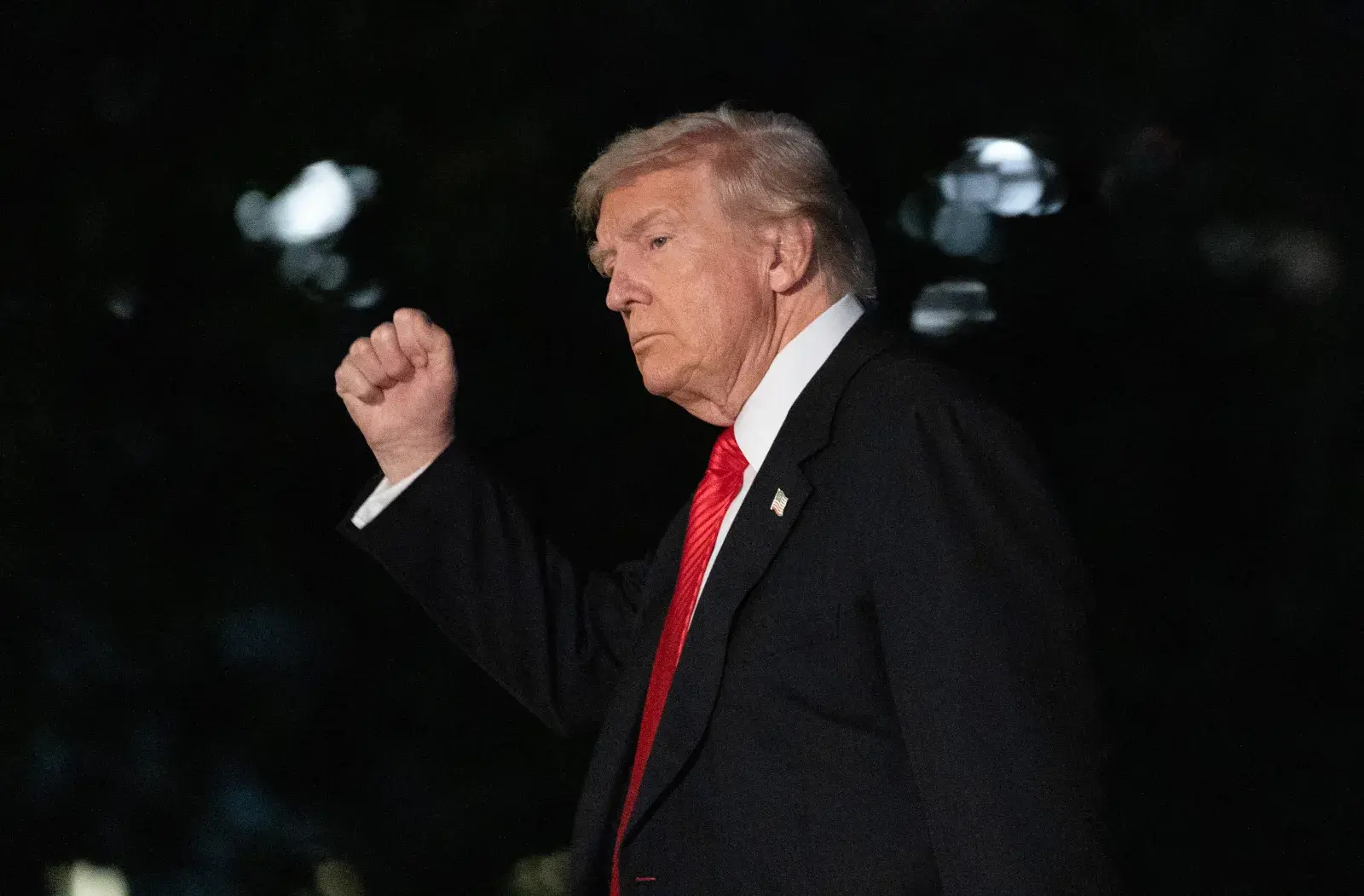Copyright newsweek

Newsweek has examined claims Donald Trump made in his 60 Minutes interview which included topics like trade, the economy and nuclear weapons. During the wide-ranging interview with CBS News’s Norah O’Donnell, the U.S. president took a swipe at the China policy of his predecessor Joe Biden, claimed that grocery prices had gone down and praised American electricity production. Out of eight claims that emerged from the interview, Newsweek found that two were true and six were false. President Donald Trump on the South Lawn upon arrival at the White House in Washington, DC, on November 2, 2025. (Photo by ALLISON ROBBERT/AFP via Getty Images) Why It Matters Trump’s appearance on 60 Minutes came one year after he sued the CBS show over the editing of an interview with Vice President Kamala Harris, alleging it misled the public in a case that was settled for $16 million. Trump would have been aware that his interview would be edited but Sunday night’s broadcast also comes as the U.S. faces regular scrutiny over his statements which are often branded as misleading, and his constant claims that he is the victim of “fake news.” 1. Joe Biden Gave Exemptions to China Tariffs on “Almost Everything” – Ruling: False Trump was asked about his meeting with Chinese President Xi JinPing in Busan, South Korea in which a deal was struck which included tariff cuts, rare earth access, and fentanyl controls. The U.S. agreed to reduce tariffs on Chinese goods from 57 percent to 47 percent and Beijing pledged to eliminate export controls on rare earths and other critical minerals. Trump told CBS he got “everything that we wanted and that while he had previously put tariffs on China, it was former President Joe Biden who had let it lapse and “gave exemptions on almost everything, which was just ridiculous.” However, the Biden administration kept, and even increased several Section 301 China tariffs that had been imposed during Trump’s first term to counter what were deemed unfair Chinese trade practices, especially around intellectual property and technology transfer. In September 2024, the Office of the United States Trade Representative (USTR) announced its final modifications to the Section 301 tariffs, keeping all of the proposed tariff increases—including higher tariffs on many categories of medical products. The USTR decided against exclusions for solar manufacturing equipment for modules, citing sufficient availability outside of China, meaning there were no exemptions on “almost everything” as Trump claimed. Craig Singleton, China Program Senior Director at the Foundation for the Defense of Democracies (FDD), told Newsweek the tariff cut in exchange for a promised fentanyl crackdown buys temporary calm, but it’s transactional relief—not a structural reset. “Both sides gave just enough to claim success— Trump gets soybeans and soundbites, Xi retains his rare-earth chokehold for use later.” 2. The U.S. Is Producing Electricity “Like Never Before” – Ruling: True Trump was asked about the AI race and whether he would allow the chip maker, Nvidia, to sell their “most advanced” chips to China. The U.S. president replied he would not allow this, suggesting this would mean losing the advantage in the AI race. Trump said the U.S. was winning the AI race because it was “producing electricity like never before” by allowing companies to make their own electricity with their generating plants and selling any extra back into the grid. Trump is right,—the U.S. is producing more electricity in 2025 than in previous years, reaching record highs driven by rising demand and growth in both clean and fossil fuel generation. In the first five months of 2025, U.S. power producers lifted total output by 2 percent compared with the previous year to a new record of 69.3 million megawatt hours (MWh), according to data by LSEG, cited by Reuters. 3. The Biggest Chip Makers Are Leaving Taiwan for the U.S. Because of Tariffs – Ruling: False Trump told O’Donnell in two years, the U.S. will have up to 50 percent of the chip market because tariffs had forced the biggest companies to leave Taiwan. In April, the Taiwan Semiconductor Manufacturing Co. (TMSC) said it would produce 30 percent of its most advanced chips in Arizona when its six Phoenix plants are operational amid a U.S. national security push to increase domestic chips production and accelerate the AI economy. However, TMSC has insisted Taiwan would remain its primary hub and the U.S. factories will not overtake Taiwan on most-advanced tech in the near term. The company announced plans to build 15 new chip fabs in Taiwan, reinforcing its commitment to domestic manufacturing. Singleton from the FDD told Newsweek that “Chinese leaders fear addiction to U...



